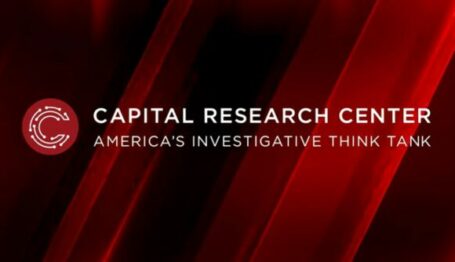Blog
The Evolving Agenda of George Soros’s Democracy Alliance
The Democracy Alliance, as we observed in the January 2008 issue of Foundation Watch (“Billionaires for Big Government: What’s Next for George Soros’s Democracy Alliance?”), is slowly maturing and becoming more focused in its objectives.
Could it be that the Democracy Alliance has finally adopted a firm business plan?
Since its founding in 2005, the DA, a liberal donors’ collaborative that aims to create a permanent political infrastructure of nonprofits, think tanks, media outlets, leadership schools, and activist groups–a kind of “vast left-wing conspiracy” to compete with the conservative movement, has focused on fairly well-established pressure groups, watchdogs and think tanks, get-out-the-vote (GOTV) operations, and political action committees (PACs). These bread-and-butter liberal groups have included:
Media Matters for America
Center for American Progress
People for the American Way
New Democratic Network
Progressive Majority
Citizens for Responsibility and Ethics in Washington (CREW)
Center for Progressive Leadership
Association of Community Organizations for Reform Now (ACORN)
EMILY’s List
America Votes
Sierra Club
Center on Budget and Policy Priorities
But now there seems to be a discernible shift in strategy by the DA, which was created by left-wing billionaires frustrated by John Kerry’s loss to George W. Bush in 2004. The Alliance, which in the beginning went well beyond a year without having a functioning website, is now suddenly embracing the Internet as an organizing tool. It posted a request for grant applications on its website earlier this year.
The Democracy Alliance’s “Letter of Interest” invited applications for the 2009/2010 giving cycle from all nonprofit groups on the left, but expressed special interest in organizations that do the following types of work:
* Building power and capacity in key constituencies: engagement and issue advocacy work with key constituencies, primarily Latinos and young people, as well as African Americans and unmarried women.
* New media and technology: content generators, aggregators and distributors that disseminate and amplify progressive messages.
* Law and legal systems: working to advance and protect progressive values and policies at all levels of the legal system.
* Early stage idea generators: focusing on progressive idea generation and development at the early and middle stages of the idea cycle including journals, academic networks, books, and non-traditional think tanks..
* Content generation: focusing on traditional and new media vehicles that are capable of developing and effectively promoting progressive ideas.
* Civic engagement coordination: achieving greater efficiency and effectiveness in mobilization and participation work through collaboration and coordination and creating economies of scale.
* Civic engagement tools: increasing capacity and availability of data services, including online organizing services for civic engagement groups.
* Election reform: focusing on structural reforms of our democratic process that will increase voter participation among progressive constituencies.
* Youth leadership development: building on the youth development part of the leadership pipeline that includes looking for organizations targeting young people that work at scale.
* Mid-career nonprofit leadership development: building on the mid-career development part of the leadership pipeline that includes looking for organizations working at scale.
The DA’s interest in coalition-building and in harnessing the power of the World Wide Web to advance the cause seems new. The focus on young people and “mid-career development” also seems new. The DA does appears to be applying a more long-term corporate-style business model to its grantmaking operations. This is not surprising given the presence in DA’s membership rolls of titans of business such as Peter B. Lewis (Progressive Insurance) and Rob Glaser (RealNetworks).
The deadline for grant applications passed August 29.
It is unclear which groups applied because the Democracy Alliance is a secretive group. Its founder Rob Stein told a Hudson Institute panel at the end of 2006 that DA activities would become more transparent over time, but from what we can tell, that hasn’t happened. Of course, we’re not holding our breath waiting.
Researchers encounter problems in attempting to identify a grant that came about through the Democracy Alliance because the DA does not generally handle the money directly. Instead, it functions as a clearinghouse, matching causes to willing donors. Unless evidence surfaces that money was funneled through the DA, who’s to say an individual grant didn’t flow to a group without Alliance involvement?
And so we’ll keep scouring databases and websites, asking questions, and waiting for the inevitable leaks.



